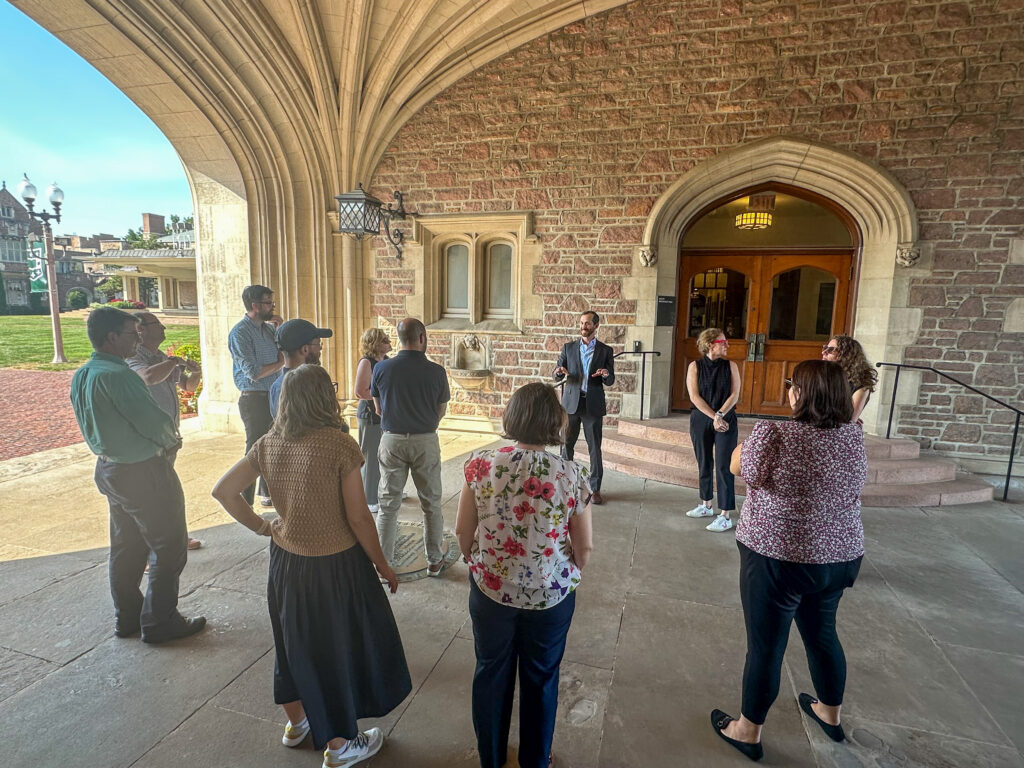At a time when advancing research is more challenging than ever, seven environmental research centers, institutes and initiatives from across the country came together to keep environmental progress on track.
The Academic Consortium for Climate, Environment and Sustainability Solutions (ACCESS), established in 2023, brings together research centers from institutions such as Cornell, Yale and Tulane to share resources and generate momentum around environmental research.
From September 9 to 11, 2025, representatives from these ACCESS universities gathered at Washington University in St. Louis for the consortium’s third in-person meeting. The focus of this meeting centered on how higher education can advance the research needed to address environmental problems despite national challenges.
Why is ACCESS important?
Dan Giammar, ACCESS co-chair, Browne professor of environmental engineering at WashU, and director of the Center for the Environment, says ACCESS allows professionals in academia to avoid “reinventing the wheel.”
“We are at a unique moment in higher education, and certainly in areas surrounding the environment and climate, where there are a lot of things we can learn from each other,” he elaborates. “ACCESS expands the network of peers working on interdisciplinary environmental research from a handful to 40 or 50.”
Coming together at WashU
For three days, attendees participated in breakout sessions and panels featuring scholars and university partners to gain a deeper understanding of campus-wide support needs.
“The biggest topic discussed was how changes in the federal landscape affect research dollars, and what we owe university researchers in terms of our role in the current situation,” says Kevin Hahn-Petruso, program manager for WashU’s Center for the Environment and coordinator of this ACCESS event.
Attendees also participated in breakout sessions on key performance indicators and attended panels featuring scholars and university partners to gain a deeper understanding of university-wide support needs.
Shelley Meaux, associate director of Tulane University’s Bywater Institute, was one of the attendees at this event. One takeaway that she gained: How to foster faculty buy-in into her institution’s mission.
“We’re in the Office of Research, where our job is to obtain research grants, which requires that the faculty trust us to give us their best science and to help them organize that,” says Meaux.
How do we keep moving forward?
These conversations helped attendees consider better ways to support their own universities. It also provided an opportunity to establish professional connections with others in similar roles.
“It’s nice to have peers who understand your work,” Meaux reflects. “We can commiserate frustrations and celebrate wins together.”
As environmental challenges grow increasingly complex, inter-university partnerships like ACCESS are crucial for pooling academic expertise and leveraging resources to create solutions for society’s most pressing issues.
“We need that community and solidarity,” Giammar adds. “It’s helpful to have that reinforcement that the work that we’re doing is important.”
Written by Elizabeth Swords, Washington University in St. Louis ’26 | Environmental Analysis, Business of Social Impact
